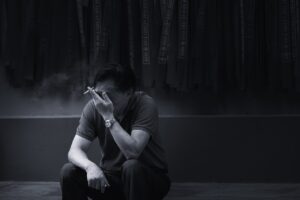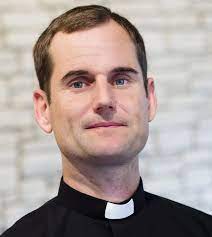 We have just launched Mary in the Anglican Tradition with Jeff Queen For Individuals and For Groups.
We have just launched Mary in the Anglican Tradition with Jeff Queen For Individuals and For Groups.
Mary, the mother of Jesus, has a special place in the hearts of Roman Catholics everywhere. But what about in the Anglican Tradition and especially The Episcopal Church? In this course, Jeff Queen, rector of St. Andrew’s Episcopal Church in Fort Thomas, Kentucky, not only offers background on particular devotion to Mary in the Anglican Tradition but also shares his own personal experience with her healing powers.
All over the world there are shrines devoted to Mother Mary, places where her apparition is said to have manifested, and a number of these apparitions have been made official by the Catholic Church. How did this tradition of apparitions start and how many places across the world has she been reported to have visited?
Jeff teaches us that in scripture, Mary, is responsible, if only through encouraging her son, for a number of miracles. She is an abiding presence, ever-supportive and ever-loving. Her reassuring presence has continued beyond her death as she been an important presence post-Scripture in the history of the Church. Mary has appeared to countless numbers of people in places all over the globe, and she continues to heal to this day.
The Episcopal Church has a steady tradition of devotion to Mary and uses prayers written by and to her. There are societies and places dedicated to Mary all over the Anglican Communion. How does this Catholic tradition cross over the line into Anglican and Episcopal communities? How long has a devotion to Mary been a part of these traditions? In this course, Jeff takes us on a mini pilgrimage to Mary through Scripture, prayer, holy sites, and worship.
This course is ideal for anyone interested in developing a closer relationship with Mary, the mother of Jesus. For a preview of the course, please click below.

 We just launched
We just launched  Long-term experience of moral injury may have symptoms similar to those of PTSD, but ways to heal from it differ. In this course, David Peters, a priest, writer, former Marine, and veterans’ advocate who has written and spoken widely about his experiences with moral injury, teaches what moral injury. He talks about how it is misunderstood, how people often experience it, and the best ways to take care of yourself (if you are the person experiencing moral injury) or others (if you are in a support position for someone with moral injury) who have it.
Long-term experience of moral injury may have symptoms similar to those of PTSD, but ways to heal from it differ. In this course, David Peters, a priest, writer, former Marine, and veterans’ advocate who has written and spoken widely about his experiences with moral injury, teaches what moral injury. He talks about how it is misunderstood, how people often experience it, and the best ways to take care of yourself (if you are the person experiencing moral injury) or others (if you are in a support position for someone with moral injury) who have it.